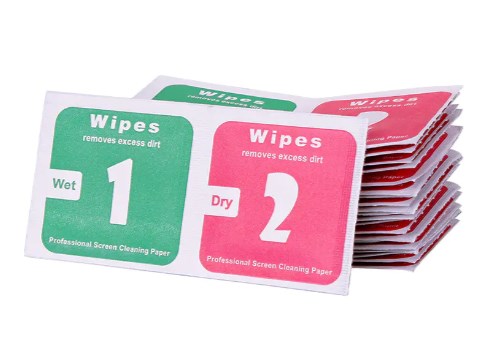News categories
Product categories
Sensitive Baby Wipes: Guardian of sensitive skin babies
Among infant care products, wet wipes (Baby Wipes) can be said to be a household necessity, especially Sensitive Baby Wipes, which are favored by new parents because they are gentle and non-irritating to the skin.
1. What are Sensitive Baby Wipes? Why is it important for sensitive skin?
Sensitive baby wipes are a type of cleansing wipes designed specifically for baby's delicate skin. Compared with ordinary wet wipes, this type of product has higher standards in material selection, formula composition, production process and sensitivity testing. The thickness of baby skin is only 1/3 of that of adults, and the barrier function has not yet fully developed, so it is easily irritated by chemical substances, and symptoms such as erythema, rash, and dry cracks appear. Using wet wipes products developed specifically for sensitive skin can effectively avoid contact dermatitis and allergic reactions.
2. Core structure analysis: from "cloth substrate" to "liquid formula"
1. Fiber substrate: softness and safety are the first priority
Sensitive Baby Wipes mostly use spunlace non-woven fabrics as the substrate, and the raw materials are usually the following three types:
Cotton: natural plant source, good skin-friendliness but high cost;
Viscose: soft to the touch, strong water absorption, often blended with cotton;
Polyester/polypropylene blend (PET/PP): low cost, high strength, but slightly inferior skin-friendliness.
In recent years, biodegradable materials (such as PLA and bamboo fiber) have also begun to be used in high-end sensitive wipes in response to environmental protection trends.

2. Formula composition: zero alcohol, zero fragrance, zero stimulation
A qualified Sensitive Baby Wipes, its liquid formula must meet the following characteristics:
No alcohol and fragrance: avoid skin dehydration and allergies;
Weakly acidic pH value (5.0-5.5): maintain the natural acid film of baby skin;
Add soothing ingredients: such as **aloe vera extract, chamomile essence, panthenol (vitamin B5)**, etc., which help relieve redness and swelling;
Use ultrapure water or EDI water: high water purity, reduce the risk of allergies.
III. Industry standards and quality inspection: invisible barriers to protect baby's health
1. International and domestic standard reference
European and American standards: such as the EU's EN 14350 and the US FDA infant care standards, which have strict regulations on chemical additive residues and allergens;
Chinese standards: such as "GB/T 27728-2020 General Technical Conditions for Wet Wipes" and "GB 15979 Hygiene Standards for Disposable Hygiene Products", emphasizing microbial limits, safety performance, etc.
2. Functional testing and allergy assessment
Sensitive baby wipes usually need to pass the following tests:
Skin irritation test (HRIPT human repeated patch test);
Eye irritation test (especially facial wipes);
Microbial testing (Staphylococcus aureus, Escherichia coli, mold, etc. must not be detected);
Heavy metal and formaldehyde testing.
IV. Purchase suggestions: How to choose a truly "mild and non-irritating" wipe?
1. Check the ingredient list: the "cleaner" the safer
On the product label, try to choose products with simple ingredients, no alcohol, no fragrance, and no pigment. Ingredients such as "phenoxyethanol" and "methylisothiazolinone" in the formula should be noted.

2. Pay attention to packaging design: sealing and portability
Avoid choosing products with loose packaging, which are easy to breed bacteria; portable packaging (such as 10 pieces/pack) is suitable for carrying outside, while large packaging is suitable for daily family use.
3. Actual trial experience
For the first use, it is recommended to conduct a sensitivity test behind the baby's ear or forearm, and use it formally after there is no rash or itching reaction for 24 hours.
Sensitive Baby Wipes are not only a cleaning tool, but also a barrier to protect the baby's skin health. Choosing the right product can not only reduce the occurrence of skin problems, but also make parenting life easier. As a new parent, in the dazzling wet wipes market, only by mastering the key purchase knowledge and industry standards can you choose a truly suitable and truly safe product for your baby.
related products
Copyright © Yangzhou Suxiang Medical Instrument Co., LTD. The information provided on this website is intended for use only in countries and jurisdictions outside of the People's Republic of China. Wholesale Disposable Cleaning Wipes Suppliers











